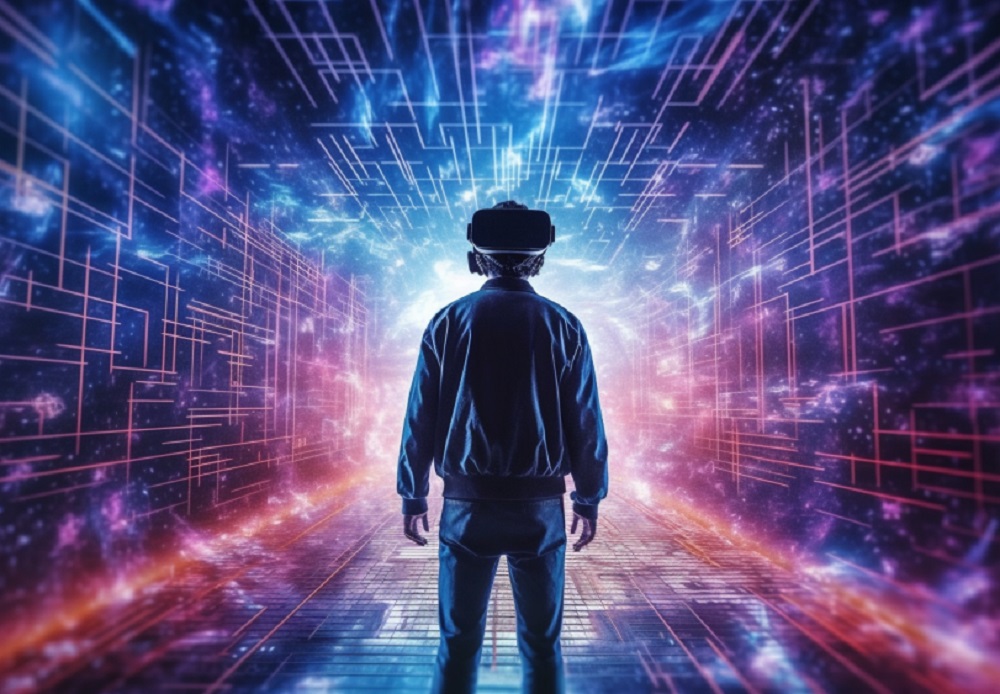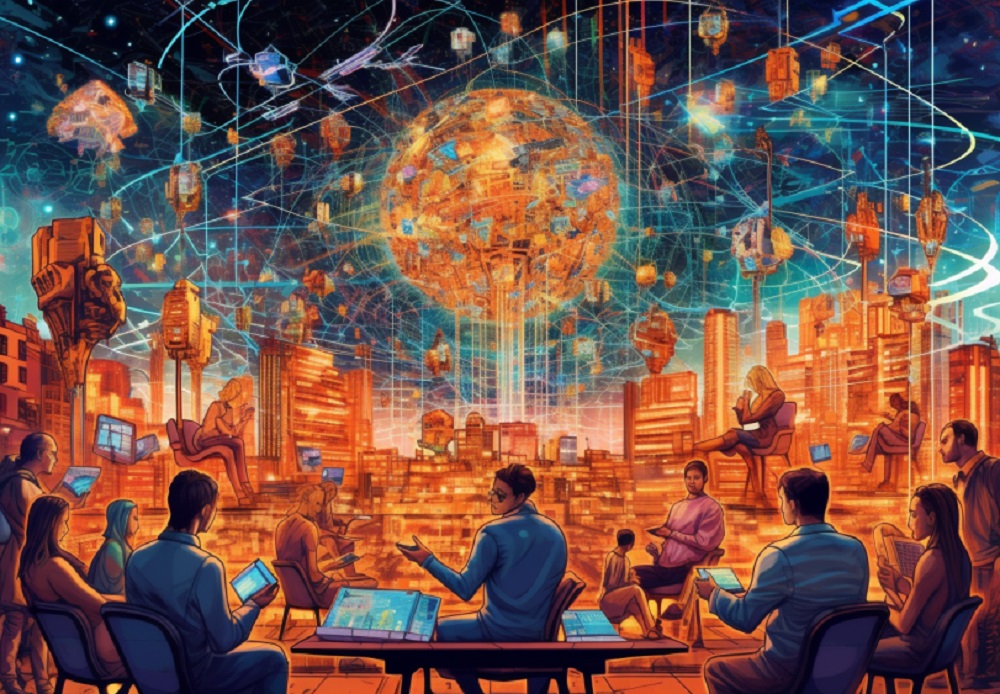The Potential of Metaverse Development
The concept of Metaverse is a virtual world where people can interact with each other, access various digital assets, and experience immersive simulations. Metaverse development is not a new concept, but with the advancements in technology, the potential of the metaverse has significantly increased. It is estimated that by 2030, the global metaverse economy will be worth over $1 trillion.
The idea of the metaverse has gained popularity in recent years, mainly due to the success of virtual games such as Fortnite, Minecraft, and Roblox. However, the potential of the metaverse is not limited to gaming; it can revolutionize many aspects of our lives, from education to commerce to social interactions. In this article, we will discuss some of the potential innovations that can emerge from metaverse development.
Metaverse Development in Education
The metaverse has the potential to transform the way we learn. With the metaverse, students can experience immersive learning environments, which can enhance their learning experience. For instance, the metaverse can provide students with simulations of various concepts, which can help them understand complex topics more easily. This can be especially beneficial for subjects such as science and technology, where visual aids can be useful in understanding complex concepts.
Additionally, the metaverse can provide students with virtual classrooms that can be accessed from anywhere in the world. Virtual classrooms can be designed to provide students with an interactive and engaging learning experience. Students can interact with their teachers and classmates in a virtual environment, which can be especially beneficial for students who have difficulty traveling or who live in remote areas. The metaverse can also enable students to participate in group projects and collaborative activities, enhancing their teamwork and communication skills.
The potential of the metaverse is not limited to traditional educational institutions. The metaverse can also provide individuals with the opportunity to learn new skills and knowledge in a more personalized and interactive manner. For example, individuals can access virtual training sessions and tutorials, which can be customized to their learning needs and preferences.
Metaverse Development in Commerce
The metaverse has the potential to revolutionize the way we conduct commerce. With the metaverse, businesses can create virtual storefronts, where customers can browse and purchase products in a virtual environment. Virtual storefronts can be designed to provide customers with an immersive shopping experience, which can enhance their engagement with the products.
The concept of the metaverse presents a promising opportunity for businesses to host virtual trade shows and conferences, where attendees can participate in a virtual environment. Compared to physical events, virtual trade shows and conferences are much more cost-effective and logistically easier to manage. Additionally, the metaverse offers businesses a unique platform to showcase their products and services in a more interactive and engaging way. This can attract a wider audience and create personalized experiences for potential customers.
The metaverse presents a unique opportunity for businesses to explore innovative ways to sell their products and services. In addition to virtual trade shows and conferences, businesses can use the metaverse to create immersive shopping experiences. Customers can browse virtual storefronts and interact with products in a way that is not possible in a physical store. This can be especially beneficial for businesses that have a limited physical presence, allowing them to reach customers in new markets without the cost of opening new physical stores.
Metaverse Development in Social Interactions
The metaverse can also revolutionize the way we interact with each other. With the metaverse, people can interact in a virtual environment, which can be especially beneficial for individuals who are unable to interact in physical environments. The metaverse can provide people with a platform to connect with like-minded individuals, share their interests, and participate in collaborative activities.
For instance, the metaverse can provide individuals with a virtual space to engage in hobbies and interests. Individuals can connect with others who share their interests and participate in virtual activities and events. This can be especially beneficial for individuals who live in areas where access to these activities is limited.
Metaverse can also offer a new level of social interaction, allowing people to engage in immersive experiences and connect with others in a virtual environment. Virtual concerts and festivals, for example, can provide a unique and interactive way for people to enjoy live music and performances from the comfort of their own homes. They can also be a way for musicians and performers to connect with their fans in a new and innovative way.
Metaverse Development in Virtual Tourism
Virtual tourism is one of the many exciting innovations that the metaverse can enable. Virtual replicas of real-world destinations can be created, allowing individuals to explore them in a more immersive and interactive way. This can be especially beneficial for individuals who may not have the opportunity to travel to these destinations in the physical world. Moreover, virtual tourism can provide people with an experience that is not possible in the real world. For example, virtual simulations can recreate historical events, allowing people to experience them first-hand.
Virtual tourism offers more than just an immersive travel experience. It can have significant benefits, one of which is its potential to be more environmentally sustainable than physical travel. By eliminating the need for transportation, virtual tourism reduces carbon emissions and helps to mitigate the impact of travel on the environment. Additionally, virtual tourism can create a wider market for travel experiences, leading to increased economic opportunities for the tourism industry.
Metaverse Development in Healthcare
Virtual healthcare is another innovation that the metaverse can enable. This can provide individuals with access to medical consultations and treatments in a virtual environment. Virtual healthcare can be especially beneficial for individuals who are unable to travel or access physical healthcare services. Moreover, virtual healthcare can enable healthcare providers to reach a wider audience, as they can provide services to individuals in remote areas.
Virtual healthcare has the potential to not only provide individuals with more accessible healthcare but also improve the quality of care. One way in which virtual healthcare can improve the quality of care is through virtual consultations. By conducting virtual consultations, healthcare providers can access more data about their patients, such as previous medical history and test results, which can inform their diagnoses and treatment plans. This can result in more personalized and effective care for patients.
Metaverse Development in Entertainment
The metaverse can provide individuals with a new platform for entertainment that is more immersive and interactive than anything that has come before it. Virtual concerts, for example, can enable individuals to attend live performances and interact with performers and other attendees in a virtual environment. Virtual sports and games can provide individuals with an opportunity to compete with each other in a virtual environment. Furthermore, the metaverse can provide individuals with a platform to create and share their own entertainment content, such as virtual performances or games.
The metaverse not only provides individuals with new entertainment options but also creates new opportunities for the entertainment industry. Virtual concerts are one example of a new revenue stream for musicians and performers. By hosting virtual concerts, artists can reach a global audience without the need for physical travel. Additionally, virtual concerts can provide an immersive experience for fans with features such as 3D environments, interactive elements, and special effects.
Metaverse Development and Environmental Sustainability
The metaverse can provide individuals with a platform to learn about and promote environmental sustainability. For instance, virtual simulations can demonstrate the impact of various environmental actions and policies. Additionally, the metaverse can provide individuals with a platform to participate in virtual activities and initiatives that promote environmental sustainability.
The metaverse is not only a platform for raising awareness about environmental issues but also a platform for collaboration and innovation in the field of environmental sustainability. One way in which the metaverse can be used to promote environmental sustainability is by using virtual environments to test new environmental technologies and policies. This can include testing the effectiveness of new renewable energy sources or new waste management strategies. Virtual testing can provide valuable insights into the potential outcomes of new technologies and policies before they are implemented in the physical world.
Metaverse and Personal Development
The metaverse can provide individuals with a platform for personal development activities, such as mindfulness and meditation. Virtual environments can be designed to provide individuals with immersive and relaxing experiences that promote mental and emotional wellbeing. Moreover, the metaverse can provide individuals with a platform to connect with others who share their personal development goals and participate in virtual activities and programs.
The metaverse can be a powerful tool for professional development, offering individuals a range of opportunities to learn and grow. Virtual environments can be designed to simulate real-world work scenarios, allowing individuals to practice and improve their skills. This can be particularly useful in industries such as healthcare or aviation, where hands-on experience is critical but difficult to come by. Virtual training environments can provide a safe and controlled space for individuals to learn and make mistakes without any real-world consequences.
The metaverse can provide individuals with a platform for educational activities, offering immersive and interactive learning experiences. Virtual environments can be designed to simulate real-world scenarios and provide hands-on learning opportunities. This can be particularly beneficial for fields such as science or engineering, where practical experience is necessary but can be challenging to obtain.
Final Thoughts
The potential of metaverse development is vast, and the innovations that can emerge from the metaverse can revolutionize many aspects of our lives. The metaverse can enhance the way we learn, conduct commerce, interact with each other, and explore various domains such as tourism, healthcare, entertainment, environmental sustainability, and personal development. With the rapid advancements in technology, the metaverse is likely to become an increasingly important part of our lives, providing us with new opportunities for growth and development.






